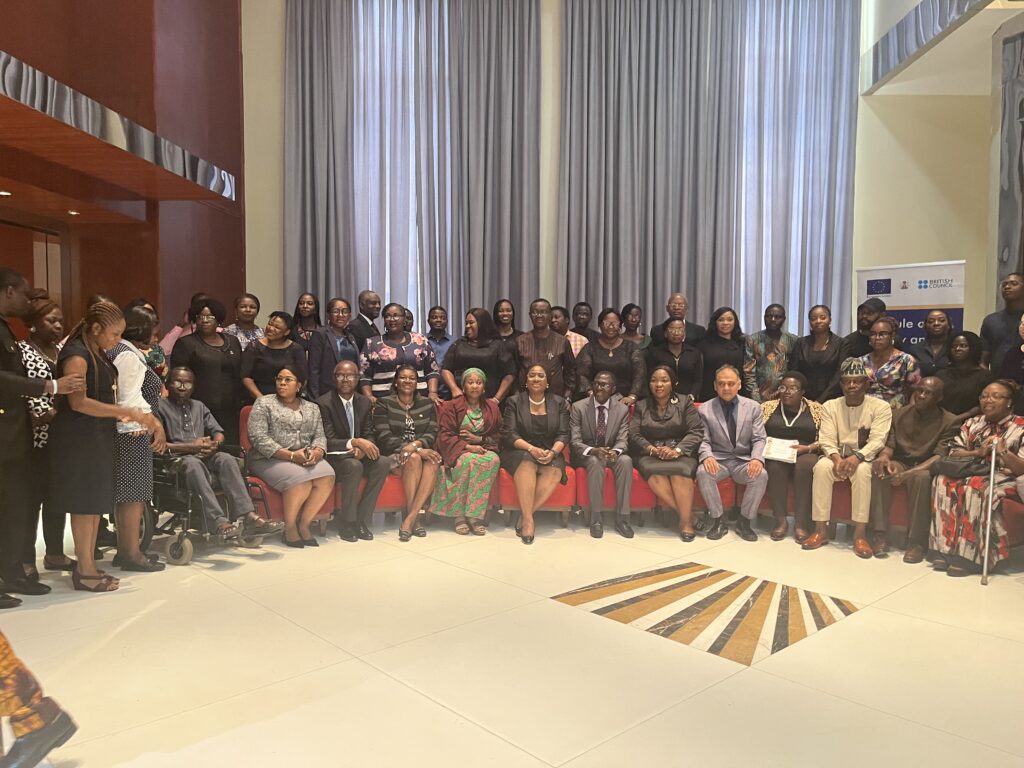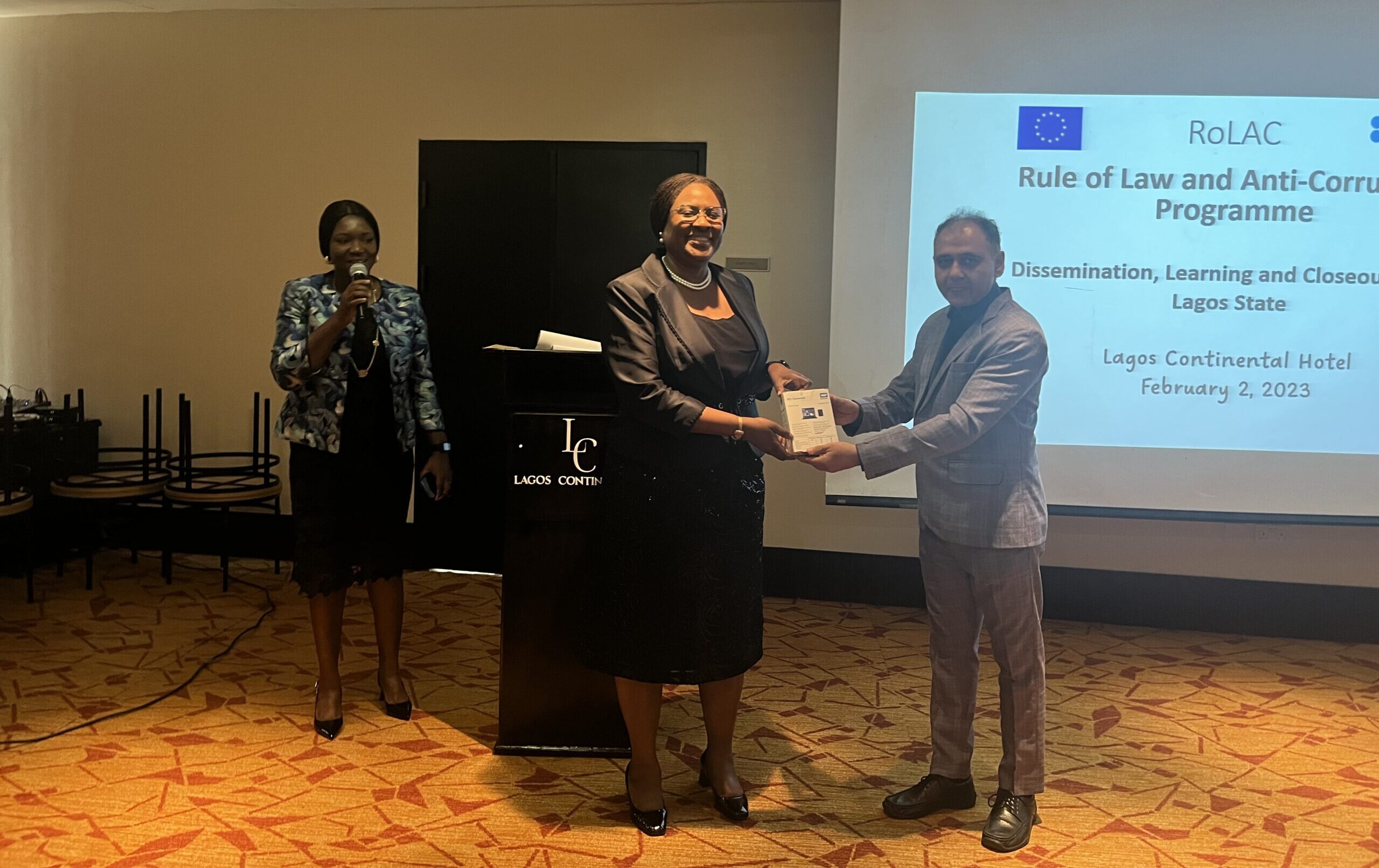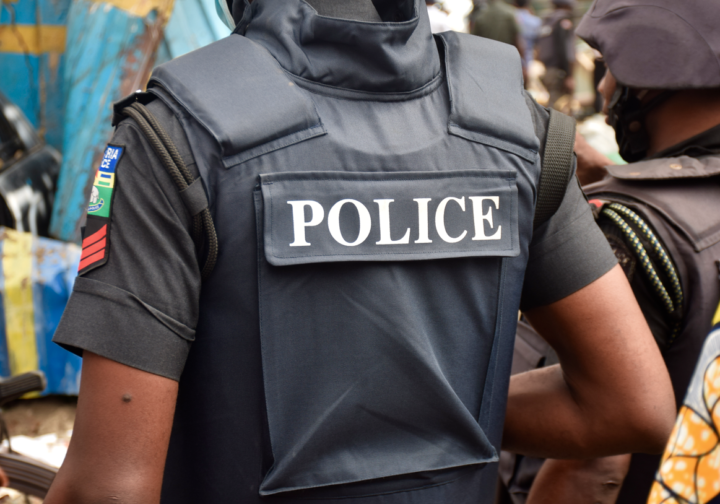The Rule of Law and Anti-Corruption (RoLAC) programme says it has reformed the public procurement system in Lagos state.
The programme which started in 2017 is funded by the European Union and implemented by the British Council. It aims at strengthening the application of law and curbing corruption in the public service.
Speaking on Thursday during the close-out ceremony of the programme, Danladi Plang, national programme coordinator, RoLAC, said the organisation came up with different initiatives to strengthen the capacity of the state in its administration of criminal justice law.
Danladi also noted that the RoLAC programme set up statement-taking rooms in the state in order to help police officers abide by global best practices in criminal justice procedure.
Advertisement
He said the programme received pushback from the state government on the implementation of the freedom of information (FoI) law, adding that most government affairs are done in secrecy.
“One of those things mentioned today is a plea bargain. The plea bargain is to ensure it increases the efficiency of the criminal justice system because it allows for a reduction in the time people spend in trying cases. If a defendant comes to admit, the case is completed as soon as possible. One of the problems we are having in the criminal justice system is the delays in trying cases. That adds to congestion in courts and prisons. The data from the ministry of justice says by the time we came, they had dealt with only 26, as of last year it increased to 300,” Danladi said.

“The second thing we have done in Lagos concerning criminal justice reform is the work we have done with the police in terms of establishing the statement-taking room, which is the first of its kind in the country. It is essential to ensure that when people are being interrogated by the police, they don’t use unorthodox means like torture to get confessional statements because it is recorded on video. It is a mechanism to reduce torture and delays in the trial of cases.
Advertisement
“In the area of supporting access to justice for women, children, and persons with disabilities, what we have done is to increase the access points for people that have been sexually violated. We established one additional sexual assault referral centre at the Alimosho General Hospital. We have also supported civil societies to serve as oversight referral pathways. We also support the child protection network, because from our data there are more children that are being harmed now. More than 700 children have been assisted in that regard.
“Our work on the anti-corruption component did not progress as much as we wanted it to. There were a couple of interventions we thought we were going to implement. One was to support their reform of the public procurement system. The second was to ensure the freedom of information law passed by the federal government is implemented to grant more access to information for citizens and to ensure transparency in the management of government affairs. The third was to help Lagos develop an anti-corruption strategy. The work on procurement has actually progressed.
“The other two areas on FoI and anti-corruption strategy didn’t progress well. The state felt that was not the way they wanted to go. So, they focused more on the public procurement aspect. But other states progressed in that aspect. We have Adamawa, Kano, Anambra, with anti-corruption strategies. In fact, they have established units in their ministries for driving that.”
Speaking at the event, Moyosore Onigbanjo, the state attorney-general, represented by Adetutu Oshinusi, a director in the state ministry of justice, said Lagos has a plan in place to sustain the initiatives introduced by RoLAC.
Advertisement
“RoLAC has been very supportive of the ministry most especially in the area of criminal justice reform. RoLAC has helped in the training of investigators, especially the police officers that are in charge of investigating accused persons. We will still keep partnering with RoLAC even after its exit.”
Add a comment






